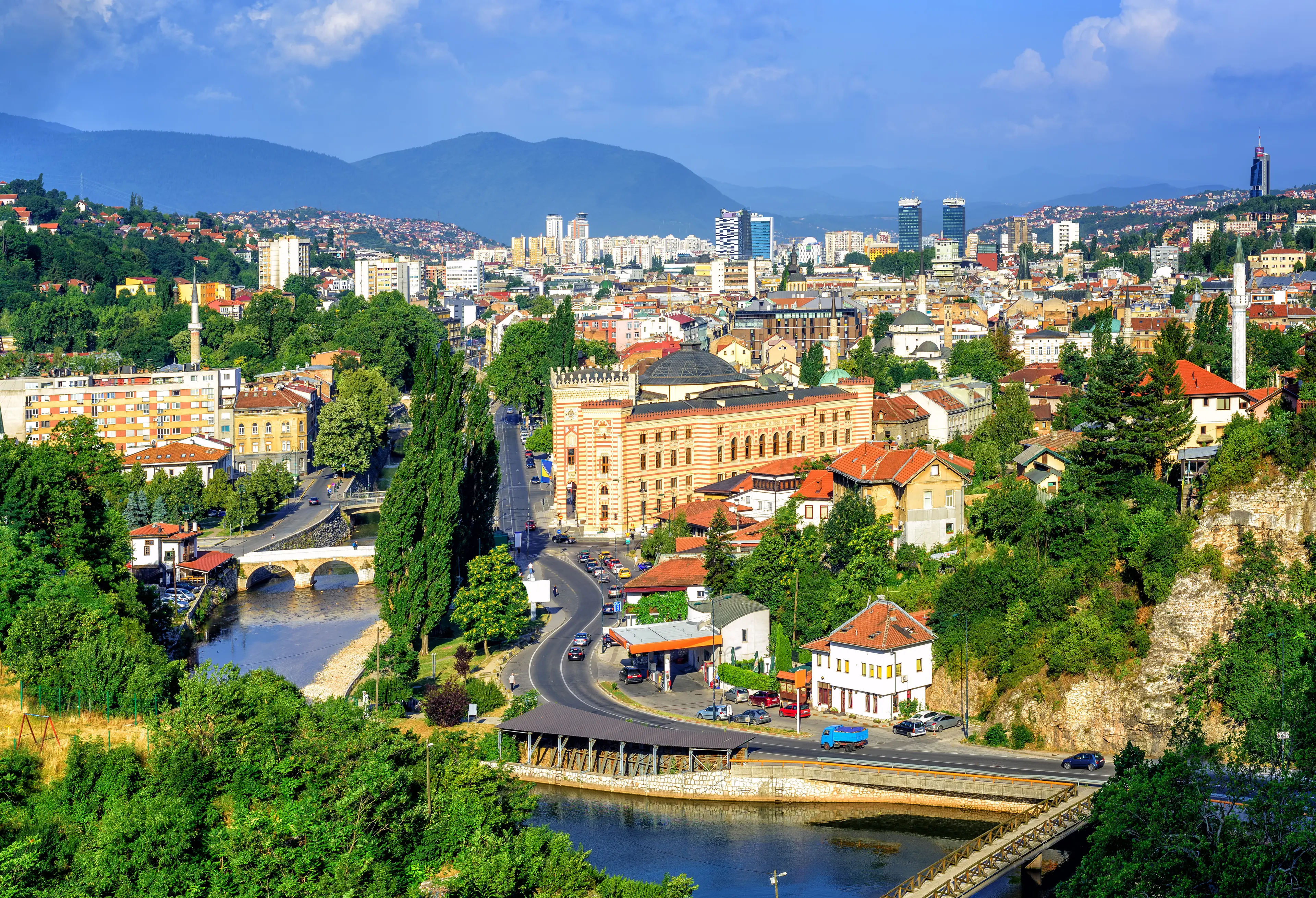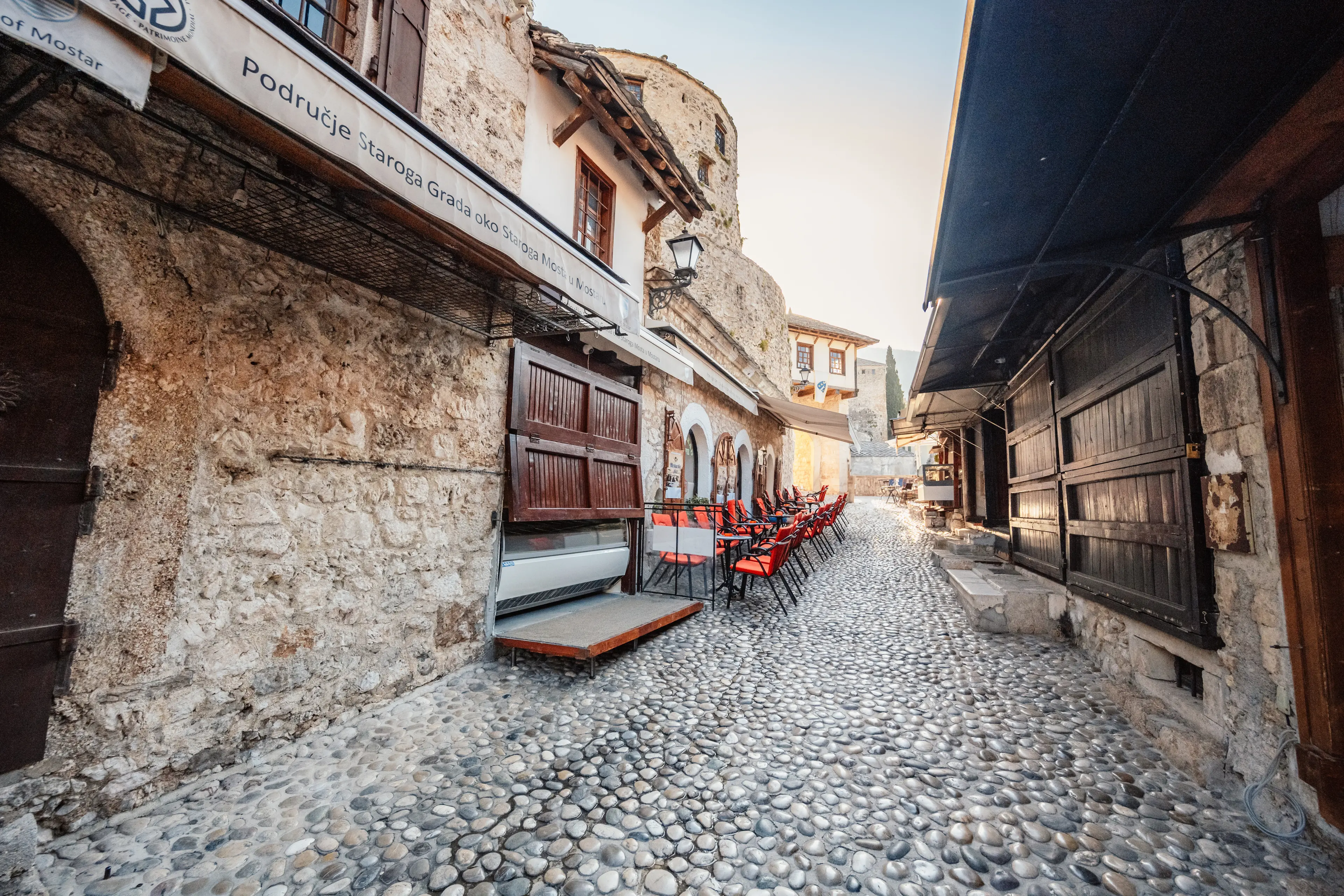4-Day Local Experience Itinerary: Sarajevo Food, Wine & Sightseeing
Sarajevo, Bosnia and Herzegovina
4 days
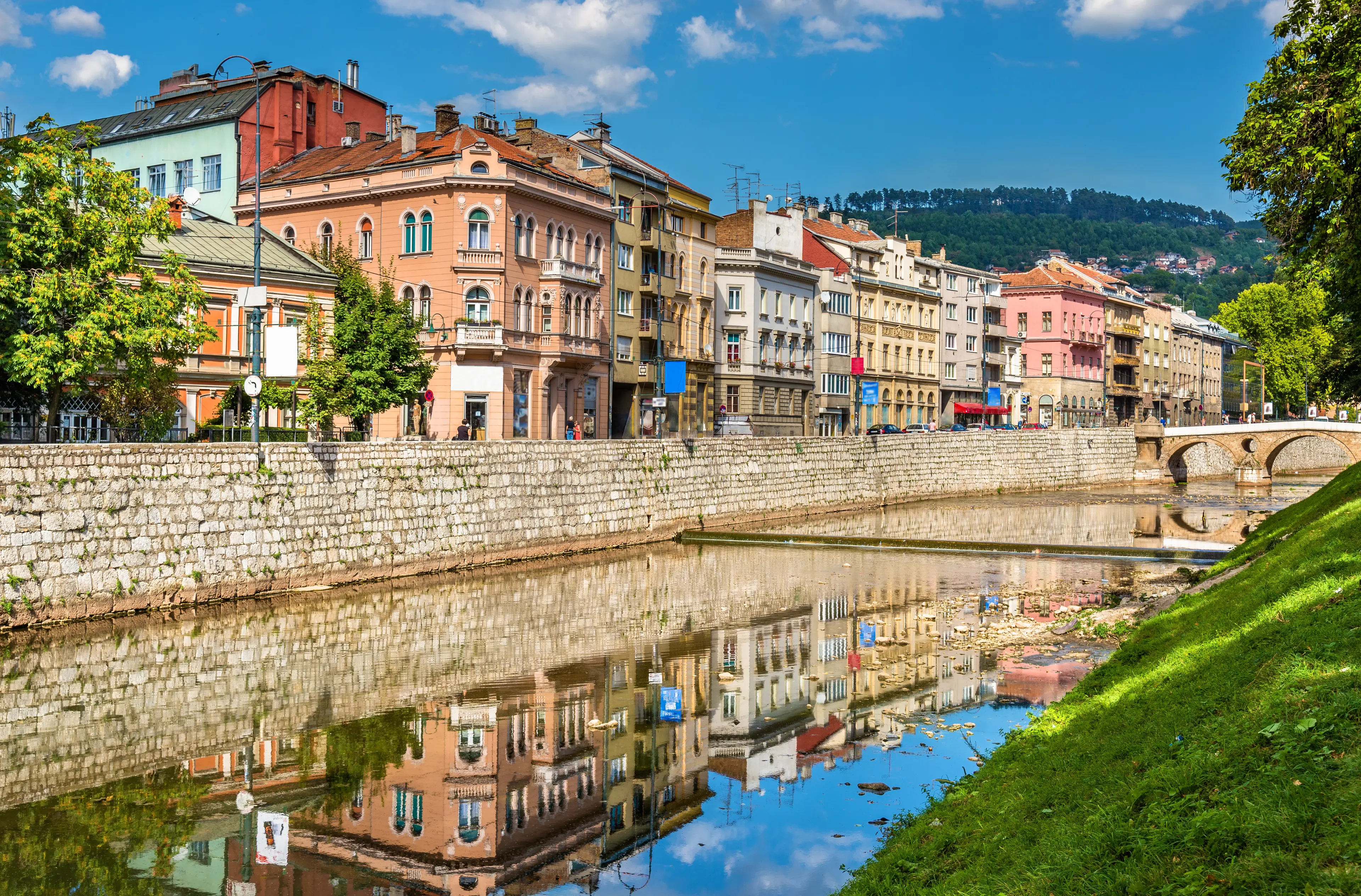
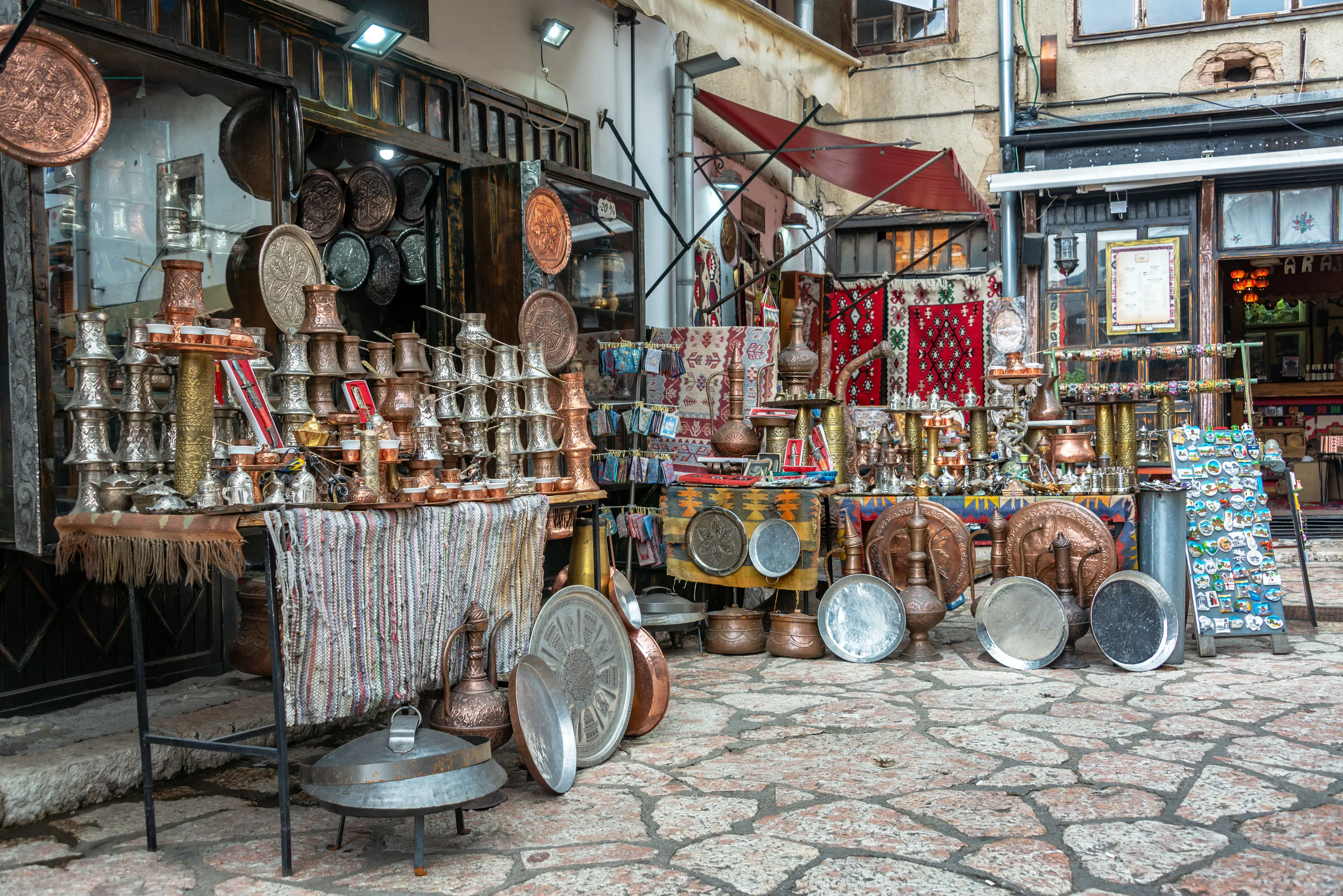
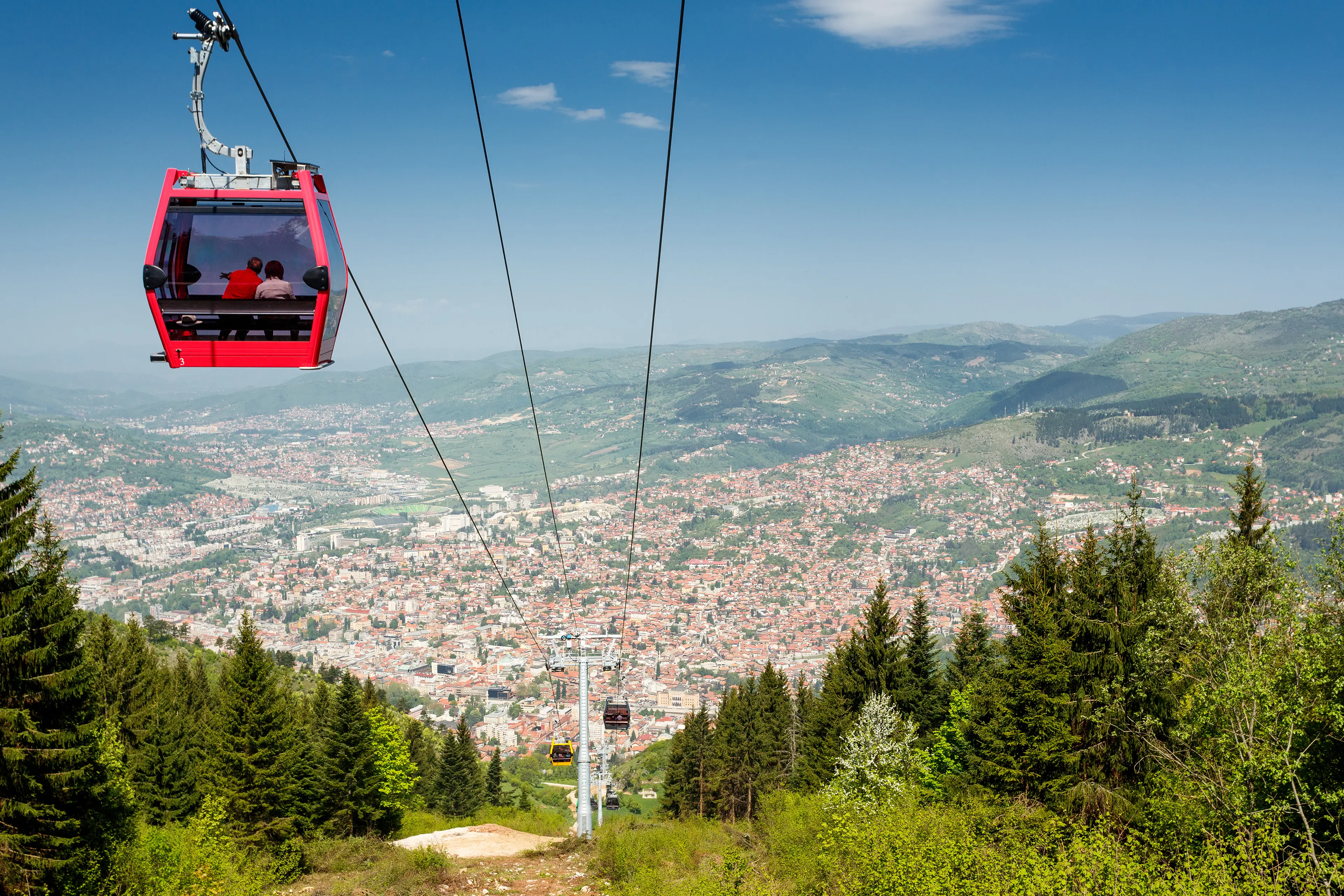
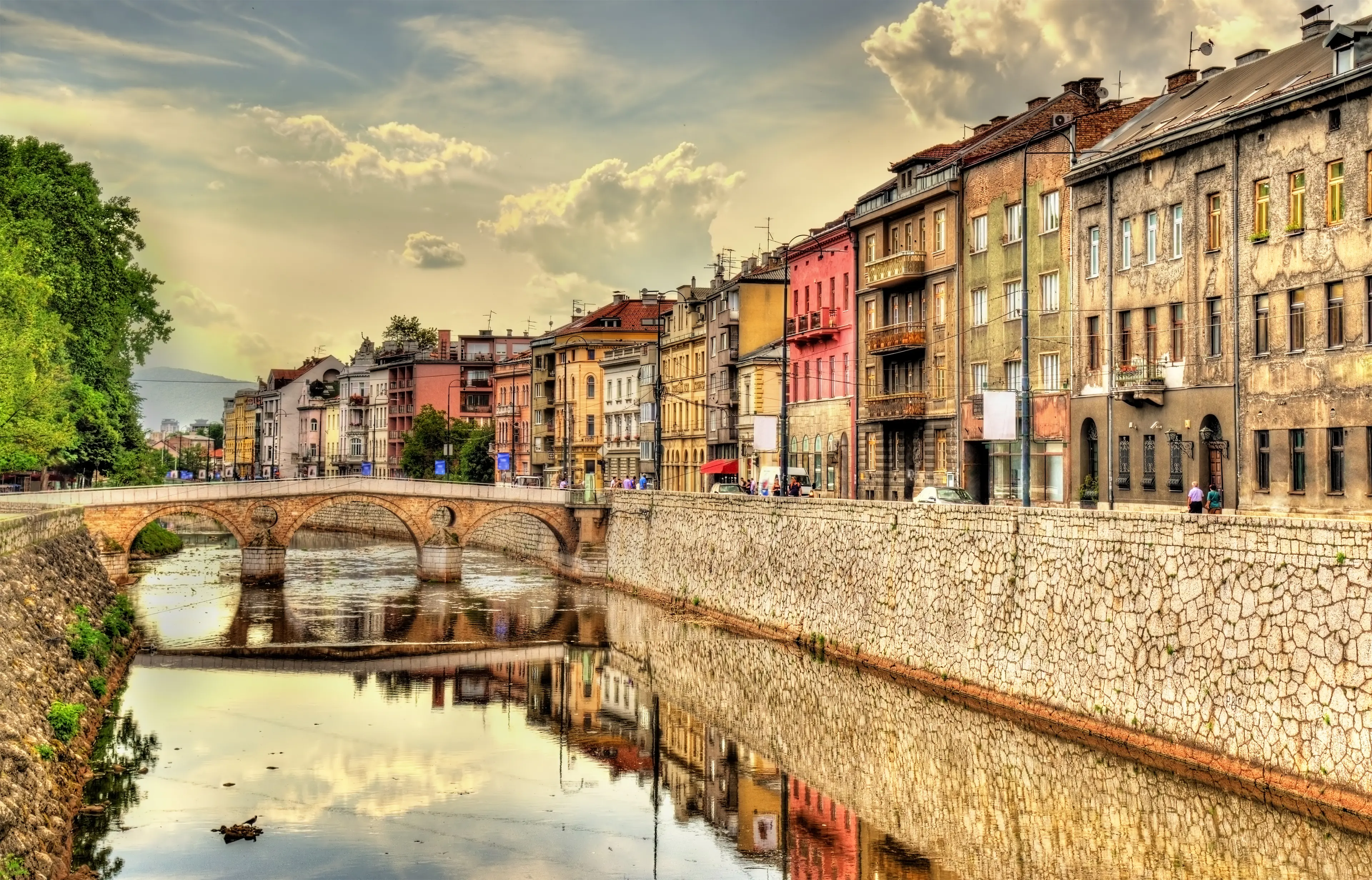
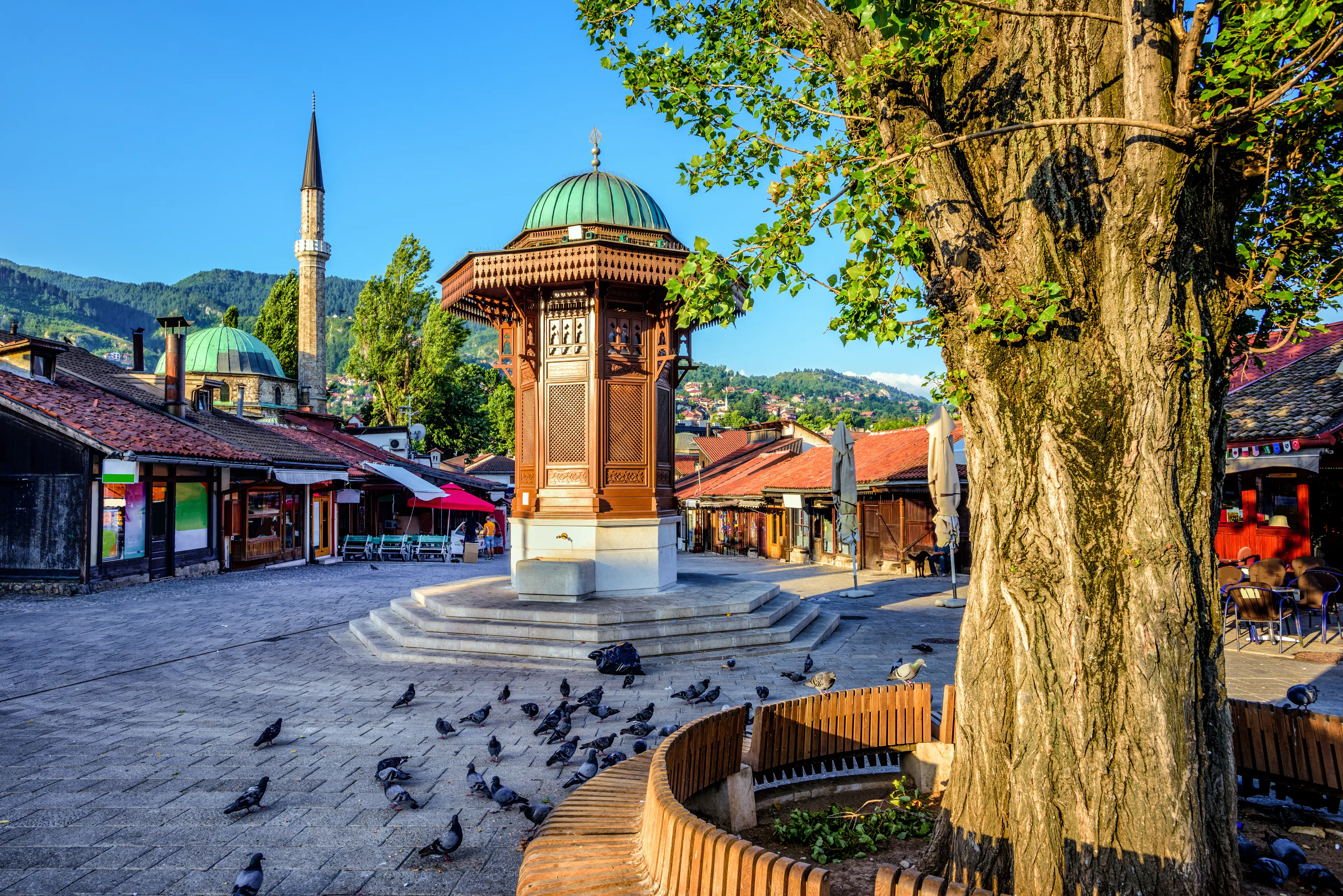
About Sarajevo, Bosnia and Herzegovina
Discover Sarajevo, the captivating capital of Bosnia and Herzegovina, a city rich in history and culture. Nestled in the heart of the Dinaric Alps, Sarajevo offers a unique blend of East and West, with Ottoman, Austro-Hungarian, and modern influences. Explore the historic Bascarsija district, with its bustling markets and ancient mosques, or visit the poignant War Tunnel Museum, a testament to the city's resilience. Enjoy traditional Bosnian cuisine, like cevapi and burek, in one of the many charming cafes. With its stunning landscapes, vibrant nightlife, and warm, hospitable locals, Sarajevo promises an unforgettable travel experience.
4-Day Itinerary
Day 2
History and Nature
Morning
Start your second day with a visit to the Sarajevo Tunnel Museum, which offers a glimpse into the city's history during the Bosnian War.
Lunch
Have lunch in a local restaurant, trying dishes like stuffed peppers or lamb stew.
Afternoon
Spend the afternoon exploring the Vrelo Bosne, a beautiful park with springs, waterfalls, and a variety of wildlife.
Dinner
Enjoy a traditional Bosnian dinner in a local restaurant. Try dishes like dolma, stuffed vegetables, or tufahija, a dessert made with apples and walnuts.
Evening
End your day with a visit to the Avaz Twist Tower, where you can enjoy panoramic views of the city.
Day 3
Ottoman and Austro-Hungarian Influences
Morning
Start your third day with a visit to the Svrzo House, a traditional Bosnian house that offers a glimpse into the lifestyle of the city's elite during the Ottoman period.
Lunch
Have lunch in a local restaurant, trying dishes like pita, a type of pie, or sarma, stuffed cabbage rolls.
Afternoon
Spend the afternoon exploring the Sarajevo City Hall, a stunning example of Austro-Hungarian architecture.
Dinner
Enjoy a traditional Bosnian dinner in a local restaurant. Try dishes like begova corba, a hearty soup, or baklava, a sweet pastry.
Evening
End your day with a leisurely walk along the Miljacka River, taking in the city's beautiful night views.
Day 4
War History and Farewell
Morning
Start your last day with a visit to the War Childhood Museum, which offers a unique perspective on the Bosnian War through the eyes of children who lived through it.
Lunch
Have your last lunch in Sarajevo in a local restaurant, trying dishes like pljeskavica, a type of burger, or kadaif, a sweet pastry.
Afternoon
Spend your last afternoon in Sarajevo exploring the Latin Bridge, a historic Ottoman bridge where Archduke Franz Ferdinand was assassinated, sparking World War I.
Dinner
Enjoy your last dinner in Sarajevo in a local restaurant, trying dishes like japrak, stuffed grape leaves, or tulumbe, a sweet pastry.
Evening
End your trip with a visit to the Sacred Heart Cathedral, a beautiful example of Neo-Gothic architecture, and a leisurely walk through the city centre.
Attractions in Itinerary (11)

1Bascarsija
Bascarsija is Sarajevo's old bazaar and the historical and cultural center of the city. It was established in the 15th century and is a place where you can experience the traditional Bosnian atmosphere.

2Gazi Husrev-beg Mosque
One of the most significant Islamic structures in Bosnia and Herzegovina, dating back to the 16th century.

3Sebilj Fountain
Sebilj Fountain is a historic wooden fountain located in the heart of Sarajevo's old town, Baščaršija. It is one of the most recognizable symbols of Sarajevo.

4Sarajevo Tunnel Museum
A museum showcasing the tunnel that was used to supply the city during the Siege of Sarajevo.

5Vrelo Bosne
A beautiful park located at the spring of the River Bosna, offering peaceful surroundings and natural beauty.

6Avaz Twist Tower
The tallest skyscraper in Bosnia and Herzegovina, offering panoramic views of Sarajevo.

7Svrzo House
A traditional Bosnian house that gives an insight into the lifestyle of an affluent family in Sarajevo during the Ottoman period.

8Sarajevo City Hall
A stunning example of Austro-Hungarian architecture, the Sarajevo City Hall is a landmark building that was restored after being destroyed in the war. It now serves as a symbol of the city's resilience and rebirth.

9War Childhood Museum
A museum dedicated to the childhood experiences during the Bosnian War.

10Latin Bridge
A historic Ottoman bridge where Archduke Franz Ferdinand was assassinated, sparking World War I.

11Sacred Heart Cathedral
The largest cathedral in Bosnia and Herzegovina, it represents the Roman Catholic Archdiocese of Vrhbosna.
Local Food and Drinks (12)

Cevapi
Cevapi is a popular Bosnian dish made of small grilled sausages served in a flatbread. It is a must-try street food in Sarajevo.

Burek
Burek is a savory pastry filled with meat, cheese, or spinach. It is a traditional Bosnian food that is often enjoyed for breakfast in Sarajevo.

Bosanski Lonac
Bosanski Lonac is a traditional Bosnian stew made with meat and vegetables. It is a hearty dish that is often enjoyed during the colder months in Sarajevo.

Sogan Dolma
Sogan Dolma is a traditional Bosnian dish made by stuffing onions with a mixture of meat and rice. It is a popular dish in Sarajevo.

Rakija
Rakija is a strong fruit brandy that is popular in Sarajevo and throughout Bosnia and Herzegovina. It is often enjoyed as an aperitif.

Pita
Pita is a type of pie made with thin pastry and filled with a variety of ingredients such as cheese, spinach, or meat. It is a popular dish in Sarajevo.
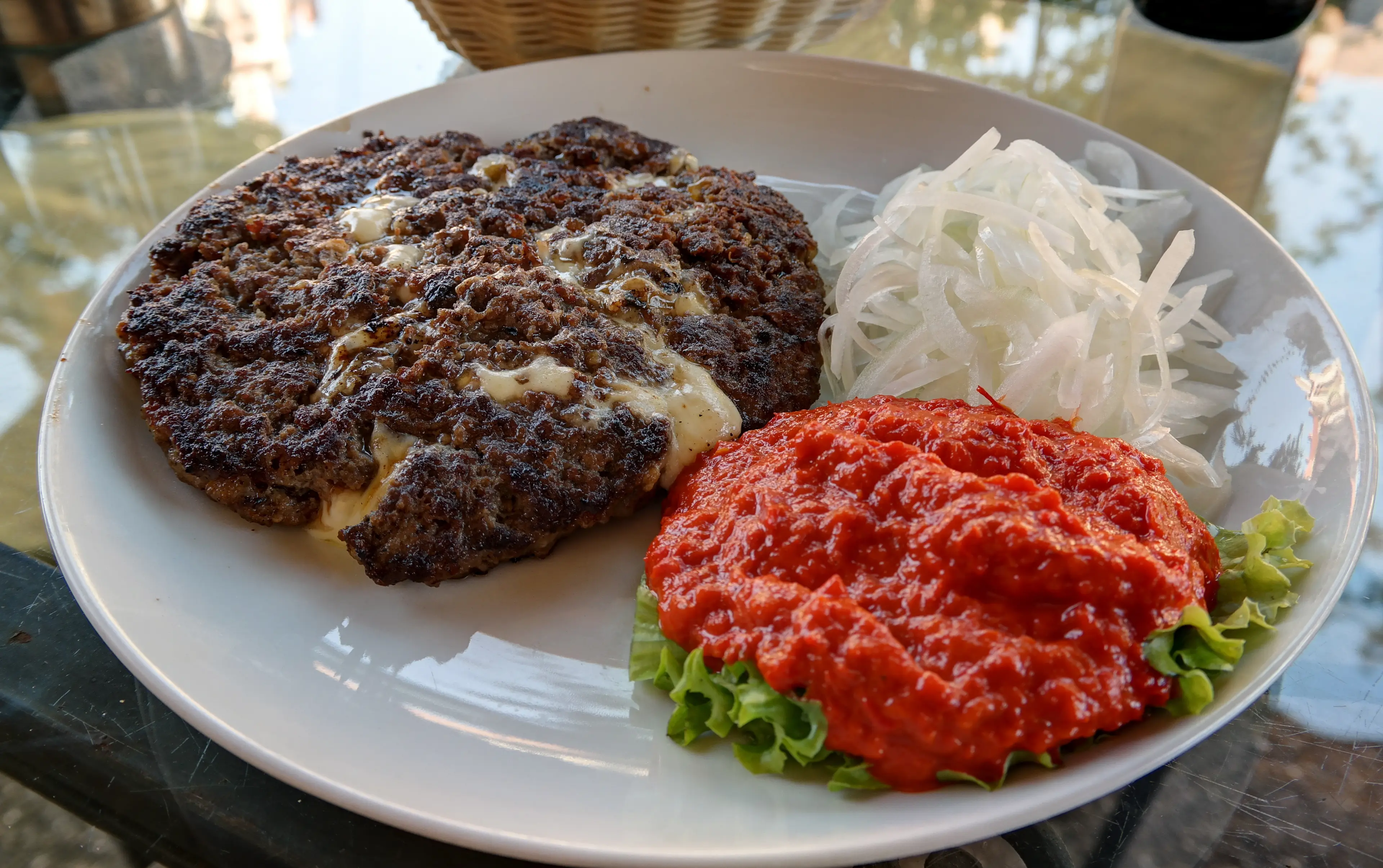
Pljeskavica
Pljeskavica is a grilled dish made from a mixture of ground meats. It is often served with onions and ajvar, a type of relish, and is a popular street food in Sarajevo.
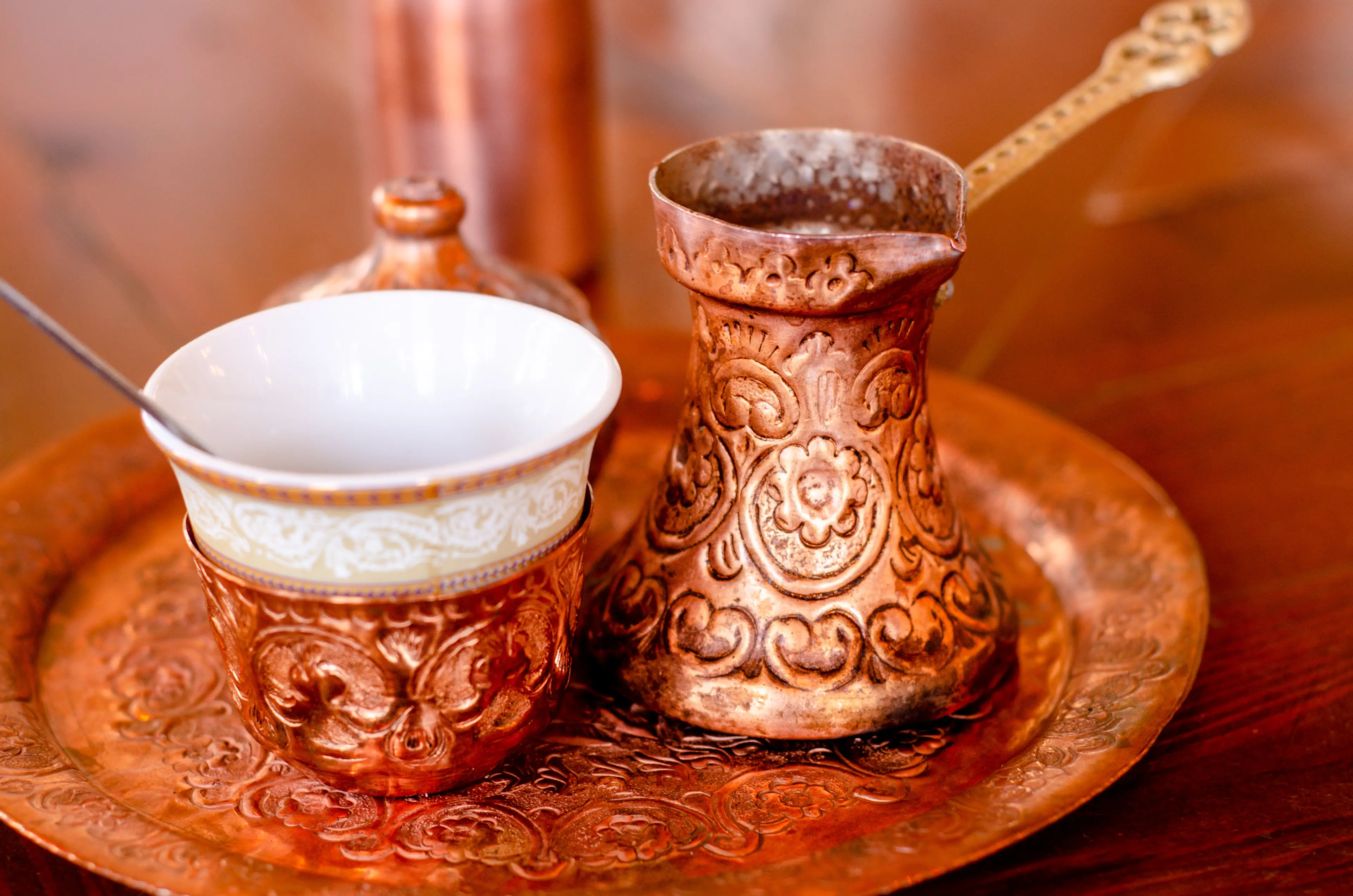
Bosanska Kafa
Bosanska Kafa is a traditional Bosnian coffee that is served in a dzezva, a special pot. It is a popular drink in Sarajevo and is often enjoyed in the morning.
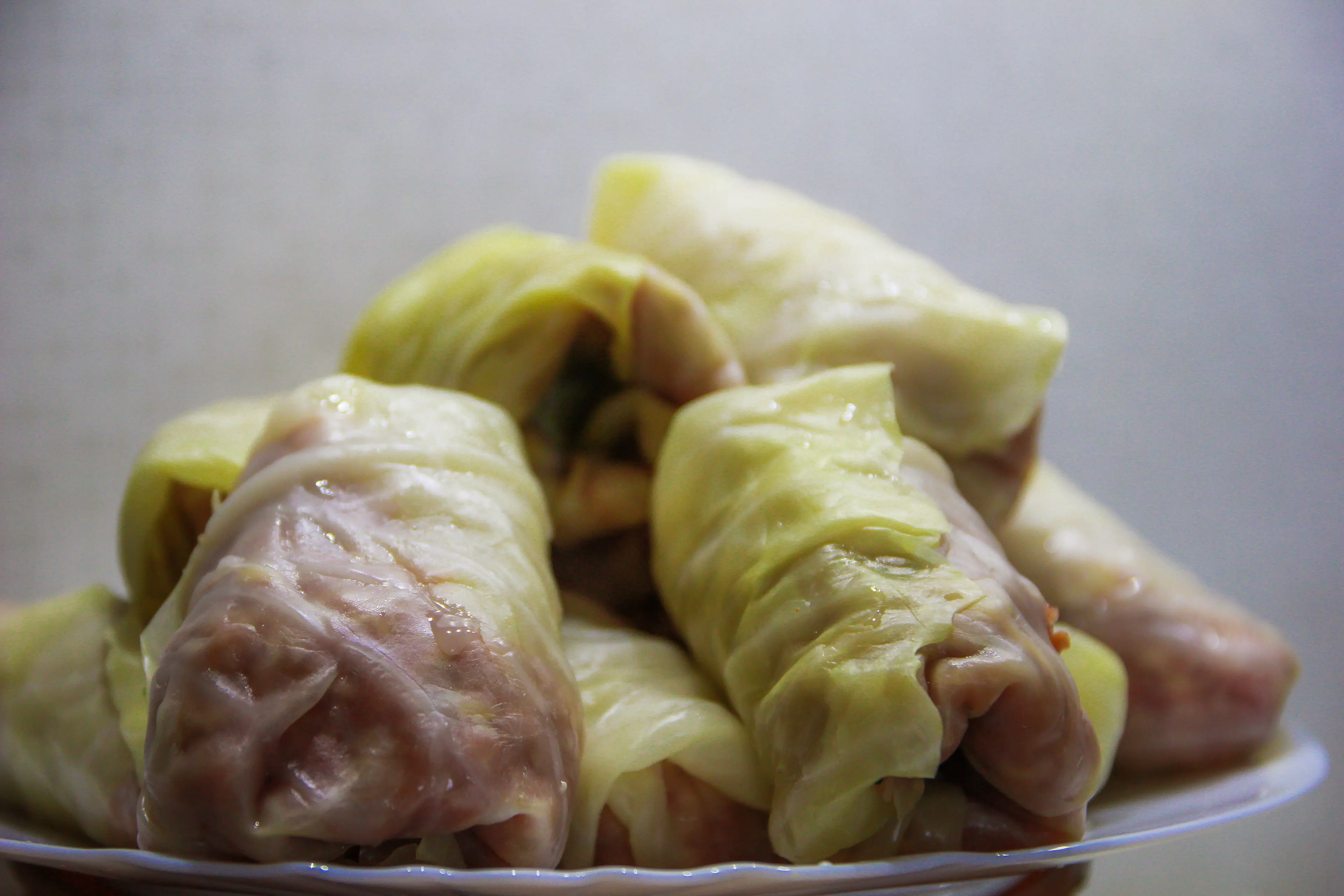
Sarma
Sarma is a traditional Bosnian dish made by stuffing cabbage leaves with a mixture of meat and rice. It is a popular dish in Sarajevo, especially during the winter months.
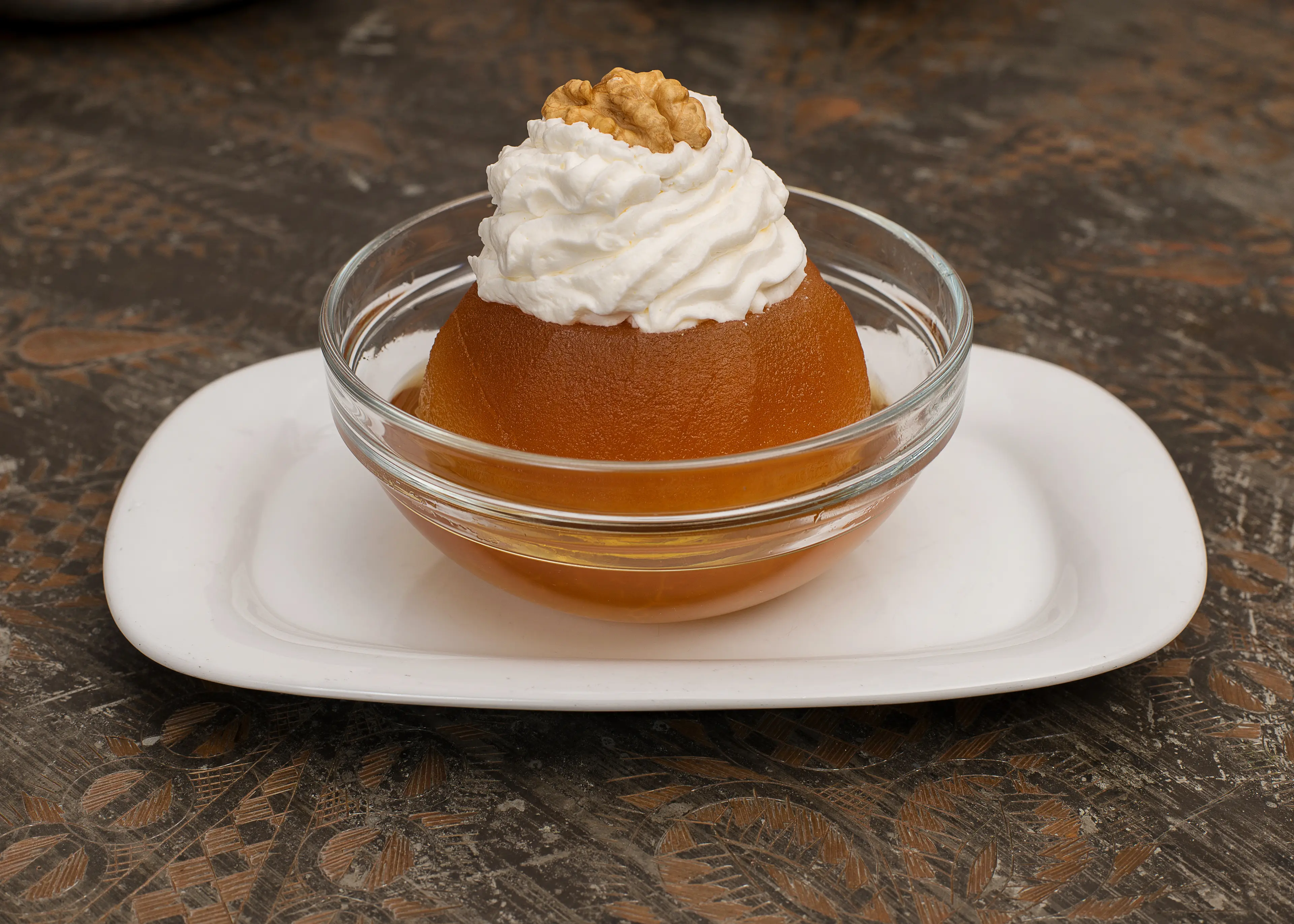
Tufahija
Tufahija is a traditional Bosnian dessert made by stuffing apples with a mixture of walnuts and sugar, then baking them. It is a popular dessert in Sarajevo.
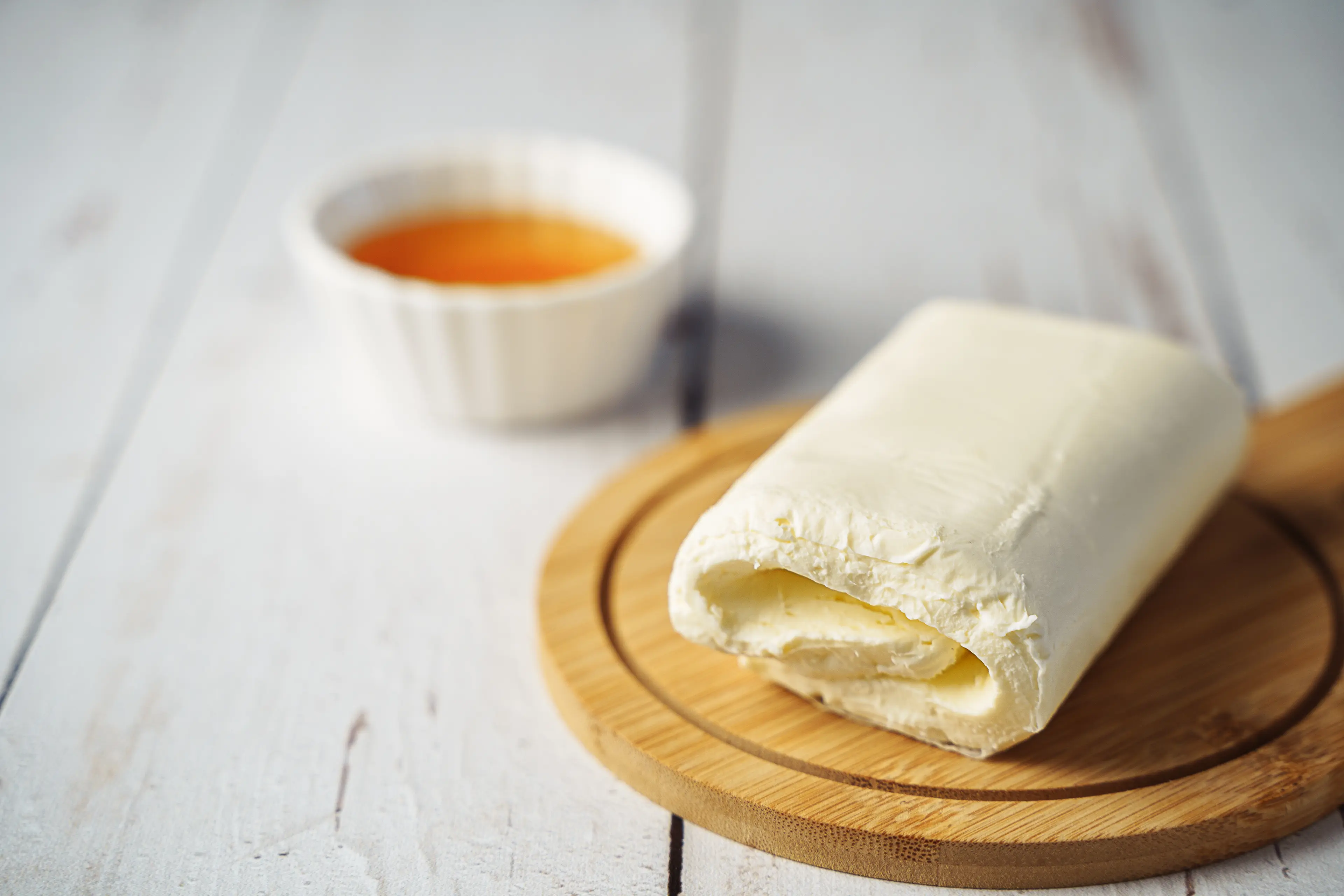
Kajmak
Kajmak is a creamy dairy product similar to clotted cream. It is often served with bread or used as a topping for grilled dishes in Sarajevo.

Salep
Salep is a hot beverage made from the tubers of the orchid genus Orchis. It is a popular drink in Sarajevo, especially during the winter months.
Best time to visit
The best time to visit Sarajevo, Bosnia and Herzegovina is from late spring to early fall, specifically between May and October. During these months, the weather is typically warm and pleasant, perfect for sightseeing and outdoor activities. The city is vibrant with numerous cultural festivals and events taking place, such as the Sarajevo Film Festival in August. However, if you're a winter sports enthusiast, you might prefer visiting between December and February when the surrounding mountains offer excellent skiing opportunities.
How to get around
Tram
Sarajevo has a well-developed tram network that covers most parts of the city. It's a convenient and efficient way to get around, especially during peak hours when the roads can get congested.
Bus
Buses in Sarajevo are frequent and cover areas not reached by the tram network. They are a good option for reaching the outskirts of the city or for short trips within the city center.
Taxi
Taxis are readily available throughout Sarajevo and can be hailed on the street or booked in advance. They offer a convenient way to get around, especially if you're travelling with luggage or in a group.
Ridesharing
Ridesharing services like Uber and Bolt are available in Sarajevo. They offer a convenient and often cheaper alternative to traditional taxis. You can book a ride using the app on your smartphone.
Car Rental
Renting a car is a good option if you plan to explore the surrounding areas of Sarajevo. However, keep in mind that driving in the city can be challenging due to heavy traffic and narrow streets.
Bicycle
Sarajevo is a bike-friendly city with numerous bike lanes and bike rental services. It's a great way to explore the city at your own pace and get some exercise at the same time.
Foot
Many of Sarajevo's attractions are within walking distance of each other, especially in the Old Town area. Walking is a great way to explore the city and soak in its atmosphere.
Cable Car
The recently restored cable car takes you from the city center to the top of Mount Trebević, offering stunning views of Sarajevo along the way. It's a must-do experience when visiting the city.
Important information
CurrencyKM BAM
Time zoneUTC+1
Driving sideRight
Emergency phoneAmbulance: 124; Fire: 123; Police: 122
Drinking waterOpt for bottled water
Power sockets
Voltage230 V
Things to know about Sarajevo, Bosnia and Herzegovina as a first time visitor
1
Bosnia and Herzegovina's official currency is the Bosnian Convertible Marka (BAM). It's advisable to have some local currency on hand for smaller establishments that may not accept credit cards.
2
The official language is Bosnian, but English is widely spoken in Sarajevo, especially by younger people and those working in tourism.
3
Bosnia and Herzegovina is a secular country with a diverse religious population, including Muslims, Orthodox Christians, and Catholics. Respect for all religious customs and traditions is expected.
4
Tipping is customary in Sarajevo. It's common to leave a 10% tip in restaurants and cafes, and to tip taxi drivers by rounding up the fare.
5
Sarajevo has a continental climate, with cold winters (average temperatures range from 20°F to 33°F / -6°C to 1°C) and warm summers (average temperatures range from 60°F to 78°F / 15°C to 25°C).
6
Public transportation in Sarajevo includes trams, buses, and taxis. Tickets for trams and buses can be purchased at kiosks or from the driver.
7
Smoking is very common in Bosnia and Herzegovina, and many bars and restaurants in Sarajevo allow smoking indoors.
8
Tap water in Sarajevo is safe to drink and of high quality, thanks to the city's mountainous location.
9
Sarajevo operates on Central European Time (CET) and observes daylight saving time.
10
Bosnia and Herzegovina is generally safe for tourists, but like any city, Sarajevo has areas that are best avoided at night. Always be aware of your surroundings.
11
The country code for Bosnia and Herzegovina is +387. It's a good idea to have a local SIM card if you plan to make a lot of calls or use data.
12
Bosnian cuisine is a blend of Mediterranean and Middle Eastern influences. Popular dishes include cevapi (grilled minced meat), burek (meat pie), and baklava (sweet pastry).
13
Sarajevo has a vibrant nightlife, with a wide range of bars, clubs, and live music venues. The city is also known for its film and music festivals.
14
Shops in Sarajevo typically open from 9am to 8pm on weekdays, and from 9am to 3pm on Saturdays. Many shops are closed on Sundays.
15
The voltage in Bosnia and Herzegovina is 220V, and the plug type is F. You may need a voltage converter and plug adapter.
16
Healthcare facilities in Sarajevo are adequate for routine problems, but serious conditions may require evacuation to a country with higher-quality medical facilities. It's advisable to have travel insurance that covers medical evacuation.
17
Bosnia and Herzegovina is part of the Balkans, a region known for its hospitality. Don't be surprised if locals invite you into their homes for a meal or coffee.
18
Sarajevo has a rich history and is known as the 'Jerusalem of Europe' due to its historical religious diversity. It's worth learning a bit about the city's past before your visit.
19
Bosnia and Herzegovina is not part of the European Union or the Schengen Area. Check visa requirements before you travel.
20
The local emergency number in Bosnia and Herzegovina is 112. It's a good idea to have this number saved in your phone.
Basic Bosnian to know as a first time visitor
English phrase | Native phrase | Pronunciation | When to use it |
|---|---|---|---|
Hello | Zdravo | Zdrah-voh | Greeting someone |
Goodbye | Doviđenja | Doh-vee-jen-ya | Leaving or saying goodbye |
Please | Molim | Moh-leem | Making a request |
Thank you | Hvala | Hvah-la | Expressing gratitude |
Yes | Da | Dah | Agreeing or confirming |
No | Ne | Neh | Disagreeing or denying |
Excuse me | Izvinite | Iz-vee-nee-teh | Getting attention or apologizing |
I don't understand | Ne razumijem | Ne rah-zoo-mee-yem | When you don't understand what was said |
Do you speak English? | Govorite li engleski? | Goh-voh-ree-teh lee eng-les-kee? | Trying to find someone who speaks English |
I'm lost | Izgubljen sam | Iz-goo-blyen sam | When you're lost |
Where is...? | Gdje je...? | Gdye ye...? | Asking for directions |
Bathroom | Kupaonica | Koo-pah-on-ee-cha | Looking for the bathroom |
Help | Pomoć | Poh-mohch | In case of emergency |
Food | Hrana | Hrah-na | Looking for food |
Water | Voda | Voh-da | Asking for water |
Beer | Pivo | Pee-voh | Ordering a beer |
Wine | Vino | Vee-no | Ordering wine |
Check, please | Račun, molim | Rah-chun, moh-leem | Asking for the bill |
How much does it cost? | Koliko košta? | Koh-lee-koh kosh-tah? | Asking the price of something |
Good night | Laku noć | Lah-koo notch | Saying goodnight |
Packing List
Clothing
Underwear (4 pairs)
Socks (4 pairs)
T-shirts (4)
Long-sleeve shirts (2)
Jeans or comfortable trousers (2 pairs)
Comfortable walking shoes
Jacket or sweater (depending on the season)
Pajamas
Swimsuit (if planning to visit a spa or pool)
Scarf, gloves, and hat (if traveling in winter)
Toiletries
Toothbrush and toothpaste
Shampoo and conditioner
Body wash or soap
Deodorant
Razor and shaving cream
Makeup and makeup remover (if applicable)
Sunscreen
Hand sanitizer
Travel-size first aid kit
Prescription medications (if applicable)
Travel documents and essentials
Passport or ID
Flight tickets
Hotel booking confirmation
Travel insurance documents
Credit and debit cards
Local currency (Bosnia and Herzegovina convertible mark)
Guidebook or map
Emergency contacts and addresses
Electronics and gadgets
Smartphone
Charger for smartphone
Universal travel adapter
Camera (if not using smartphone for photos)
Charger for camera
Headphones or earbuds
Portable power bank
Miscellaneous items
Travel pillow and eye mask
Earplugs
Snacks for the journey
Reusable water bottle
Travel-size laundry detergent
Ziplock bags for liquids
Umbrella or raincoat
Notebook and pen
Books or e-reader for entertainment
Weather Conditions
Sarajevo, the capital of Bosnia and Herzegovina, experiences a humid continental climate with four distinct seasons, each offering a unique charm to the city. In the winter months, from December to February, Sarajevo becomes a snowy wonderland with temperatures often dropping below freezing, averaging between -2°C (28°F) and 5°C (41°F). If you're planning a trip during this time, be sure to pack warm clothing, including a heavy coat, gloves, and boots. This is also a great time for winter sports enthusiasts as the nearby mountains offer excellent skiing and snowboarding opportunities. Spring, from March to May, sees a gradual rise in temperature, with averages ranging from 5°C (41°F) to 20°C (68°F). This is a beautiful time to visit as the city comes alive with blooming flowers and green landscapes. Light jackets and rain gear are recommended as spring can be quite rainy. Summer, from June to August, is warm and sunny with temperatures often reaching up to 30°C (86°F). It's the perfect time for outdoor activities and exploring the city's historical sites. However, it's also the peak tourist season, so expect larger crowds. Pack light clothing, sunscreen, and a hat to protect against the sun. Autumn, from September to November, is characterized by cooler temperatures, ranging from 10°C (50°F) to 20°C (68°F), and vibrant fall foliage. It's a great time to visit if you prefer less crowded tourist spots. A light jacket or sweater would be sufficient for this weather. Regardless of when you visit, it's always a good idea to check the local weather forecast before your trip to pack appropriately. Also, keep in mind that the weather can be quite different in the mountains surrounding Sarajevo, so if you plan to hike or ski, make sure to prepare for colder temperatures and possible sudden weather changes.
| Month | Hi / Lo (°C) | Weather Overview |
|---|---|---|
January | 4° / -2° | January is the coldest month in Sarajevo, with frequent snowfall and chilly temperatures. |
February | 7° / -1° | February is still quite cold, but with slightly warmer temperatures and less snowfall than January. |
March | 12° / 2° | March sees the beginning of spring, with temperatures starting to rise and less frequent snowfall. |
April | 17° / 5° | April is a mild month, with temperatures continuing to rise and the landscape starting to bloom. |
May | 21° / 9° | May is a pleasant month, with warm temperatures and plenty of sunshine, perfect for outdoor activities. |
June | 24° / 12° | June marks the beginning of summer, with long sunny days and warm temperatures. |
July | 26° / 14° | July is the hottest month in Sarajevo, with temperatures often reaching the mid-20s, perfect for exploring the city. |
August | 26° / 14° | August is similar to July, with hot temperatures and plenty of sunshine, but with occasional rain showers. |
September | 21° / 11° | September marks the beginning of autumn, with temperatures starting to drop and leaves starting to change color. |
October | 17° / 7° | October is a mild month, with temperatures continuing to drop and the landscape turning into a palette of autumn colors. |
November | 11° / 3° | November is a chilly month, with temperatures dropping further and the first signs of winter starting to appear. |
December | 5° / -1° | December is a cold month, with temperatures often dropping below freezing and frequent snowfall, creating a winter wonderland. |
Did you know?
Places near by Sarajevo, Bosnia and Herzegovina

Mostar
Known for the iconic Stari Most (Old Bridge), a reconstructed medieval arched bridge, and its beautiful old town.

Travnik
Historic town known for its fortress, old town, and beautiful mosques.

Jajce
Famous for its beautiful waterfall and historic fortress.

Konjic
A small town known for its old wooden bridge and Tito's nuclear bunker.

Medjugorje
A popular Catholic pilgrimage site with the reported apparitions of Virgin Mary to local children.

Banja Luka
The second largest city in Bosnia and Herzegovina, known for its Kastel Fortress and Vrbas River.

Visegrad
Known for the Mehmed Paša Sokolović Bridge, a UNESCO World Heritage site.

Dubrovnik
A stunning Croatian city on the Adriatic Sea known for its distinctive Old Town.

Belgrade
The capital of Serbia, known for its vibrant nightlife and historic sites such as the Kalemegdan Fortress.

Zagreb
The capital of Croatia, known for its historic Upper Town and beautiful squares.
